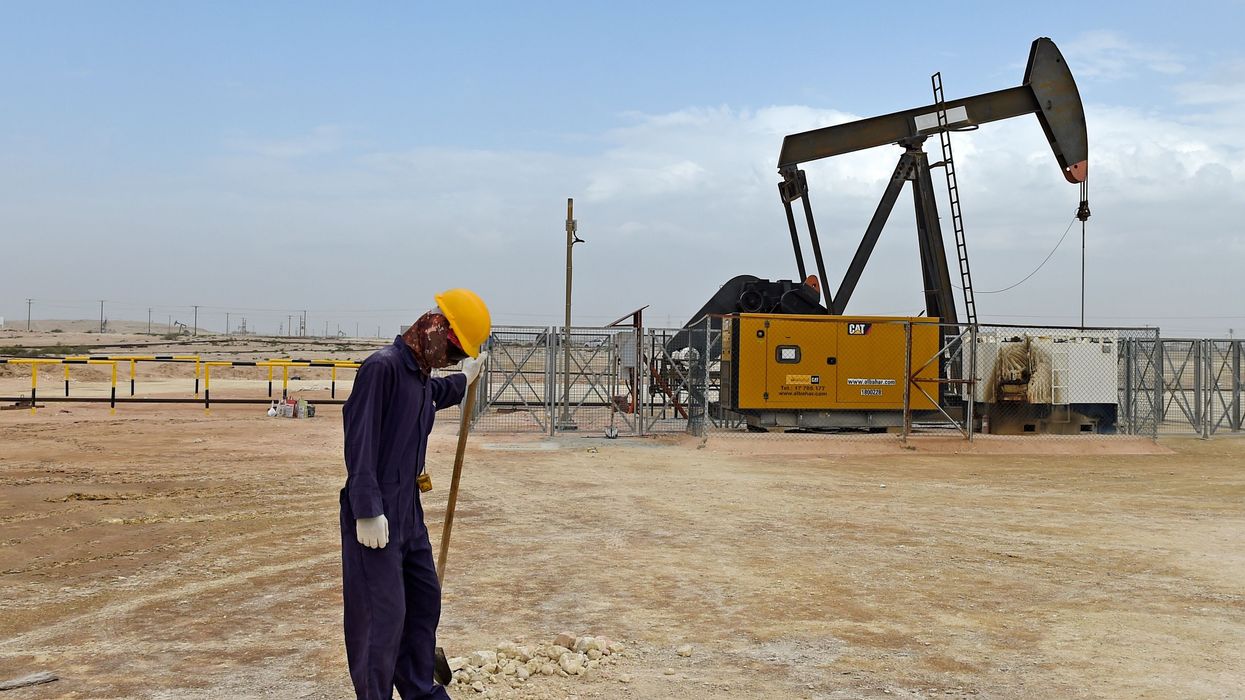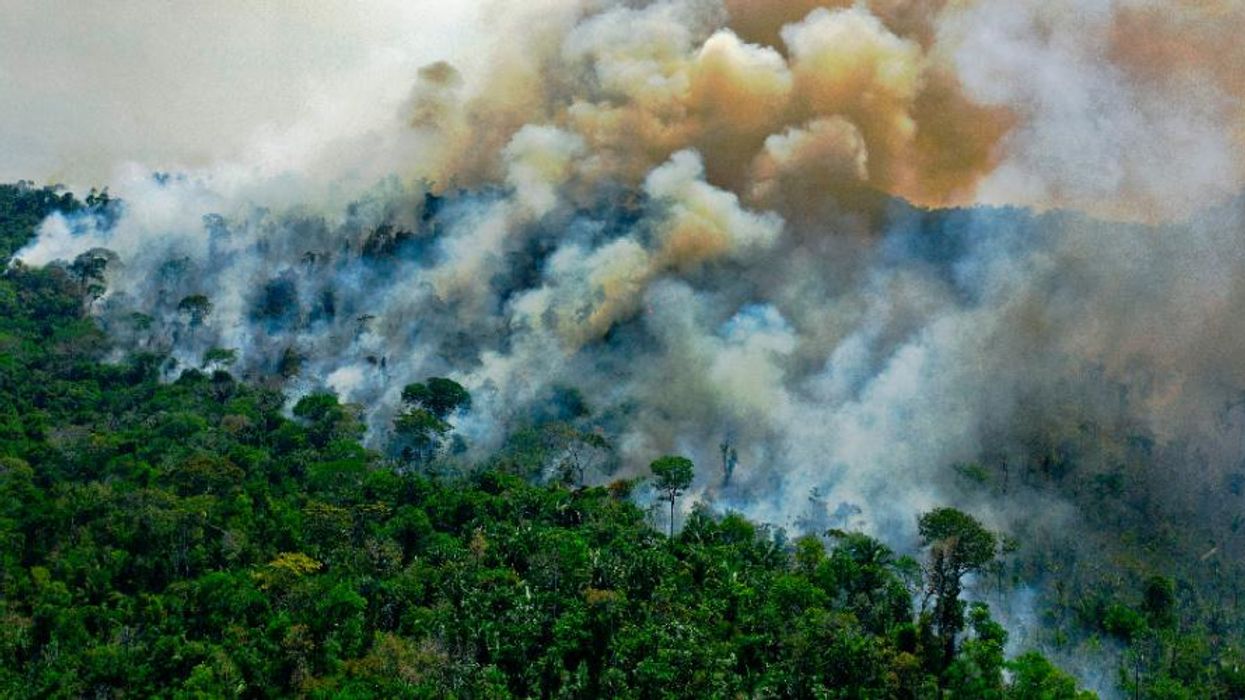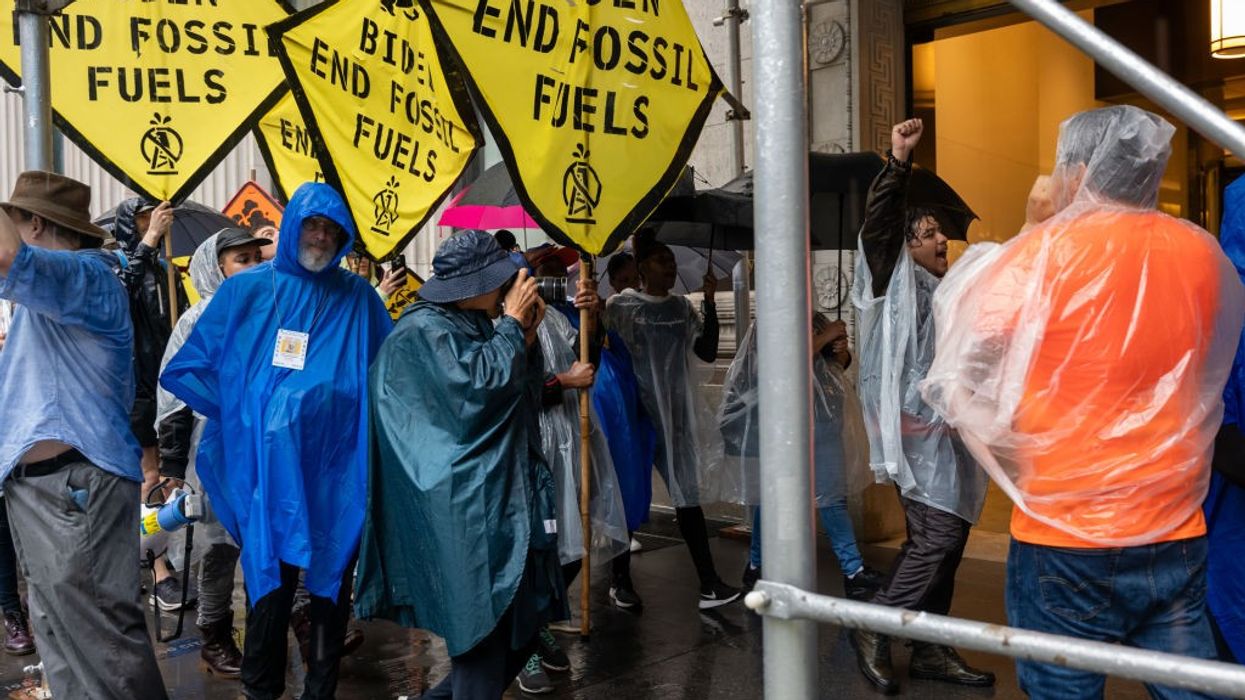Fury Over $500 Million US Export-Import Bank Loan to Bahrain 'Climate Bomb'
"This approval signals another setback for Biden's climate commitments, and cements the United States yet again as the worst of the laggard countries in violation of the promise to end international public finance for fossil fuels," one campaigner said.
Despite a Biden administration pledge to stop backing international fossil fuel projects by 2022, the U.S. Export-Import Bank announced Thursday that it would provide a $500 million loan for oil and gas expansion in Bahrain.
The funding marks the fifth time that EXIM has chosen to back a fossil fuel project abroad since President Joe Biden joined the Clean Energy Transition Partnership (CETP) at the United Nations COP26 climate conference in Glasgow in 2021.
"EXIM's decision to approve the Bahrain oil and gas project is another alarming step in the wrong direction for climate action, as the bank goes rogue and continues to defy President Biden's promises," Nina Pušic, an export finance climate strategist at Oil Change International, said in a statement, adding that the project was a "huge climate bomb paid for by the American taxpayer."
"This is the wrong decision. Our health, planet, and future are at stake—the U.S. must stop financing oil and gas expansion."
Signatories to CETP vowed to "end new direct public support for the international unabated fossil fuel energy sector by the end of 2022" and instead shift financing toward renewable energy projects. Yet an Oil Change analysis published in September found that countries including the U.S. continued to back fossil fuel projects after signing.
According to that analysis, the U.S. had approved the largest number of projects after the CETP's 2022 deadline to stop funding oil, gas, and coal. What's more, counting Thursday's $500 million, the EXIM has funded fossil fuel projects to the tune of $1.3 billion since the cut-off date.
"This approval signals another setback for Biden's climate commitments, and cements the United States yet again as the worst of the laggard countries in violation of the promise to end international public finance for fossil fuels," Pušic said.
In its announcement, EXIM said that the money, lent to Bahrain's semi-independent Bapco Energies, would support around 2,100 jobs in Texas and other U.S. states and "was not expected to result in a meaningful increase in oil and gas production." The bank pointed out that Bapco Energies had signed the COP28 Oil and Gas Decarbonization Charter, promising net-zero operations by 2050 and an end to flaring by 2030.
"This transaction will support thousands of U.S. jobs and play a crucial role in ensuring Bapco Energies is able to achieve its climate goals of enhanced grid interconnectivity, more efficiency, decarbonization, and investments in large-scale solar projects," EXIM President and Chair Reta Jo Lewis said in a statement.
However, EXIM told Congress when it first announced the potential funding that the project would create more than 400 new oil wells and 30 new gas wells, Reuters reported.
The announcement came two days after Democratic and Independent lawmakers led by Sen. Jeff Merkley (D-Ore.) sent a letter to the bank urging it not to fund the project "because of its negative impacts on the climate."
In the letter, the legislators pointed to the International Energy Agency's assessment that any new oil, gas, and coal investment was incompatible with the Paris agreement goal of limiting global heating to 1.5°C. Further, they noted that Congress had stipulated that EXIM should review the environmental and climate impact of projects when it reauthorized its charter in 2019.
"The world is in the midst of a climate crisis that is already having devastating impacts on millions of people across the globe," the letter concluded. "We cannot afford to have EXIM undermine domestic and international climate progress by financing projects that worsen this crisis. We urge you to take EXIM's mandate to consider the environmental impacts of projects seriously, and to start by disapproving new funding for oil and gas drilling in Bahrain."
"The United States has lost any credibility it had as a climate leader, and instead has proven to be led by forces like EXIM to prop up a dying industry while simultaneously killing its own people."
Instead of heeding the lawmakers' request, EXIM approved five times the amount of funds it had initially told Congress is was considering.
"We can't tackle climate chaos and lead the globe to a renewable energy economy if we keep greenlighting fossil energy of the past," Merkley said on social media in response to the news. "This is the wrong decision. Our health, planet, and future are at stake—the U.S. must stop financing oil and gas expansion."
The move comes as younger voters have warned Biden that he should double-down on climate friendly policies to encourage youth turnout in the 2024 presidential election. Writing in Common Dreams on Thursday, Noa Greene-Houvras, a 17-year-old climate activist with Fridays for Future NYC, encouraged the president to stand up to EXIM and back an OECD proposal to end the support of export credit agencies for oil and gas projects.
In a separate statement, Greene-Houvras said: "We are horrified at the decision to send $500 million to new oil projects in Bahrain. The United States has lost any credibility it had as a climate leader, and instead has proven to be led by forces like EXIM to prop up a dying industry while simultaneously killing its own people."
"As youth we are watching our future slip away, engulfed by fire and flood," Greene-Houvras continued, adding "We are both terrified and baffled at this decision making process, and we will not let this stand."


